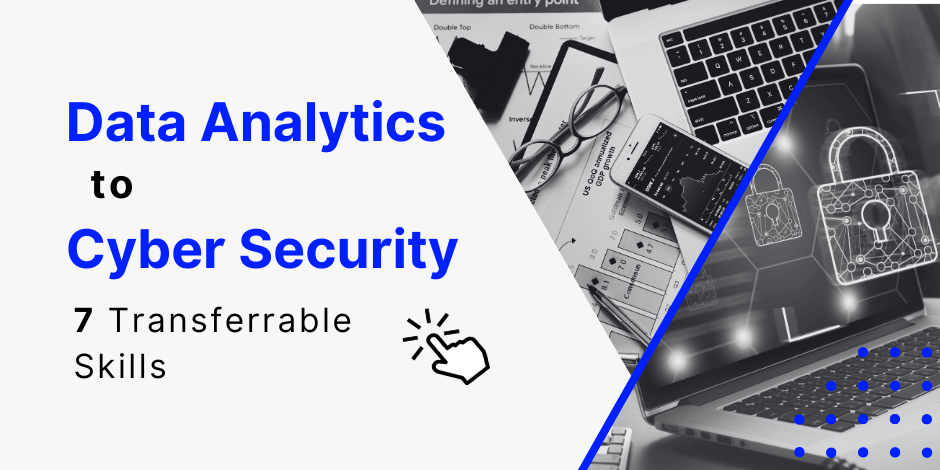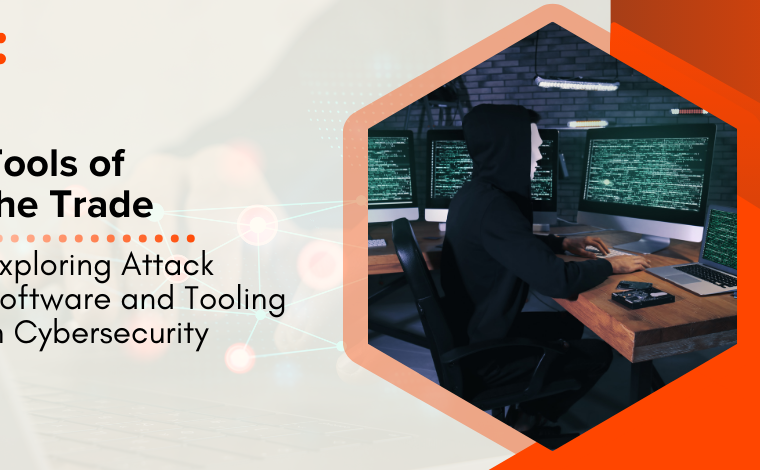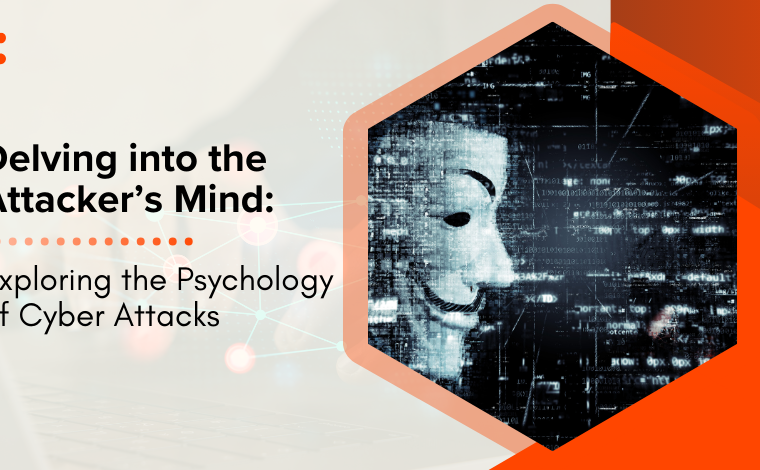Data Analytics to Cyber Security: 7 Transferrable Skills

Stay Informed With Our Weekly Newsletter
Receive crucial updates on the ever-evolving landscape of technology and innovation.
As the world becomes increasingly digitized, the demand for professionals in the fields of data analytics and cyber security is growing at a rapid pace.
These two fields overlap significantly, and individuals with skills and knowledge in both areas are becoming highly sought after by organizations across various industries.
We will explore the intersection of data analytics to cyber security and identify seven transferrable skills essential for professionals in both fields.
Introduction: The growing demand for data analytics and cyber security professionals
The exponential increase in data generated by organizations and individuals has given rise to the need for professionals who can analyze, interpret, and make informed decisions based on this data.
Data analytics has become crucial for businesses looking to remain competitive, as it allows them to identify patterns, trends, and insights that would otherwise be difficult to discern.
However, with the rise of data analytics comes an increased risk of cyber threats.
Many companies now understand the significance of safeguarding their data against cyberattacks, and as a result, they are making significant investments in cybersecurity measures to reduce the risks.
While data analytics and cyber security may seem vastly different, they share many commonalities – most notably, the need for individuals with specialized skills and knowledge to navigate complex data environments.
Organizations can build a robust data and security management infrastructure by combining these fields.
The need for data analytics and cyber security experts is rapidly increasing as companies strive to stay competitive and safeguard their essential information.
But what exactly do these professionals do?
Individuals who work as data analysts are tasked with gathering, arranging, and analyzing vast amounts of data to identify patterns and trends that can be used to make informed business decisions.
They use various tools and techniques, such as statistical analysis, data visualization, and predictive modeling, to extract valuable insights from data.
In contrast, cyber security professionals safeguard organizations from cyber threats like hacking, phishing, and malware attacks. Their duties include:
- Developing and implementing security measures.
- Monitoring networks for suspicious activity.
- Responding to security incidents as they arise.
Although data analytics and cyber security professionals have distinct daily responsibilities, they must comprehensively understand data and information systems.
Handling intricate data sets, recognizing patterns and anomalies, and conveying their discoveries to stakeholders clearly and concisely are all required skills. Additionally, they must keep themselves informed about the latest tools and technologies in their fields, as these are constantly changing.
Why the connection between data analytics to cyber security matters

Organizations can benefit significantly from the intersection of data analytics and cyber security. Using data analytics techniques, cyber security professionals can detect potential vulnerabilities in a system and take proactive measures to prevent threats.
This helps ensure the safety and security of the organization’s data.
Similarly, cyber security measures can be taken to protect valuable data assets while enabling data analytics to be meaningful and relevant.
Machine learning and artificial intelligence techniques can detect anomalies and threats in data sets and help build predictive models to prevent attacks or minimize their impact.
The role of data analytics in cyber security is not limited to prevention. After a cyber attack, data analytics can be used to identify its source, understand the scope of the damage, and develop strategies to mitigate future risks.
Here are 7 transferrable skills that data analysts and cyber security experts have in common.
Skill 1: Proficient data analysis and interpretation
The ability to analyze and interpret data is fundamental to both data analytics and cyber security. Professionals in these fields must be able to understand complex data sets, identify patterns and anomalies, and draw meaningful conclusions from them.
The first step toward proficiency in data analysis is to develop a foundational understanding of statistics and probability theory.
This knowledge helps professionals understand the likelihood of certain events occurring and how to measure and interpret those events when they do occur.
Professionals must also know data visualization techniques and tools to communicate their findings to non-technical stakeholders effectively. This involves using charts, graphs, and other visual representations of data to present complex information in a digestible way.
Skill 2: Strong problem-solving and critical-thinking abilities

Both data analytics and cyber security require individuals who are skilled problem solvers and critical thinkers.
They must be able to identify potential challenges, develop creative solutions to overcome them, and adapt to new and evolving situations as they arise.
To excel in their roles, cyber security professionals must be able to anticipate potential vulnerabilities and strategize ways to mitigate them before any attack occurs. Similarly, data analytics professionals should be able to think creatively and abstractly, utilizing data to uncover hidden patterns and trends not immediately visible.
Skill 3: Knowledge of programming and scripting languages
Data analytics and cyber security professionals must know programming and scripting languages to be effective in their roles.
While the specific language requirements may vary depending on the organization and job role, proficiency in at least one language is essential.
Common languages used in data analytics include Python, R, and SQL. In cyber security, languages like Java, C++, and Python may be used to develop and maintain security systems and applications.
Skill 4: Data visualization and communication skills
From data analytics to cyber security professionals, clear communication of findings and insights is crucial.
Visual aids like charts, graphs, and other representations of data help convey complex information to non-technical stakeholders, enabling them to grasp and make informed decisions.
Professionals in both fields must also have strong communication skills to explain technical concepts and findings to individuals who may not have a technical background.
Communicating complex technical information concisely and efficiently is a highly valued data analytics and cyber security skill.
Skill 5: Understanding of statistical concepts and methods
Data analytics and cyber security professionals must understand statistical concepts and methods to analyze and interpret data effectively.
Knowledge of statistical models such as regression analysis, time series forecasting, and clustering is necessary for professionals in data analytics.
In cyber security, statistical techniques such as anomaly detection and Bayesian networks can be used to identify potential threats and vulnerabilities in a system.
Skill 6: Familiarity with machine learning and artificial intelligence
Machine learning and artificial intelligence techniques are increasingly important in data analytics and cyber security. They enable professionals to identify patterns and anomalies in data sets that would be impossible to uncover using traditional analytical methods.
Professionals in both fields must have a foundational understanding of machine learning techniques to apply them to their work effectively. This includes knowledge of algorithms such as decision trees, neural networks, and support vector machines.
Skill 7: Ethical hacking and penetration testing expertise

Cyber security professionals must know about ethical hacking and penetration testing to proactively protect against cyber threats. These techniques involve simulating attacks on a system to identify potential vulnerabilities and develop strategies to mitigate them.
To excel in this field, one needs a profound grasp of various attack vectors, network security protocols, and the typical weaknesses found in computer systems.
Additionally, it’s essential to have the ability to create and execute security measures that can counter these vulnerabilities and prevent possible attacks.
Conclusion
As the demand for professionals in data analytics and cyber security continues to grow, individuals with skills and knowledge in both fields are becoming highly sought after by organizations across various industries.
The 7 transferrable skills identified in this article are essential for professionals in both fields to succeed. By combining skills and knowledge from data analytics and cyber security, individuals can build a robust skillset that organizations highly value in various industries.
If you want to learn more about cybersecurity or data science, you can check out the courses offered by the Institute of Data. We also offer free career consultations with our local team if you’d like to discuss your options.




